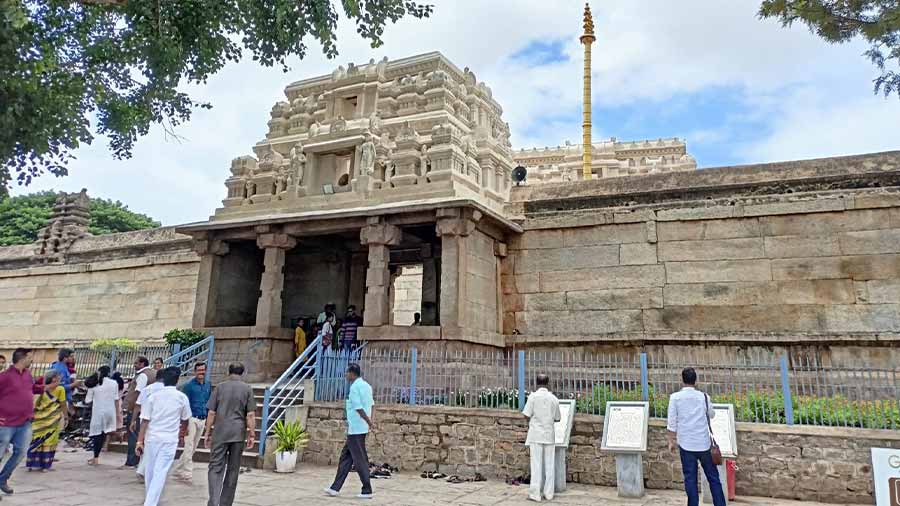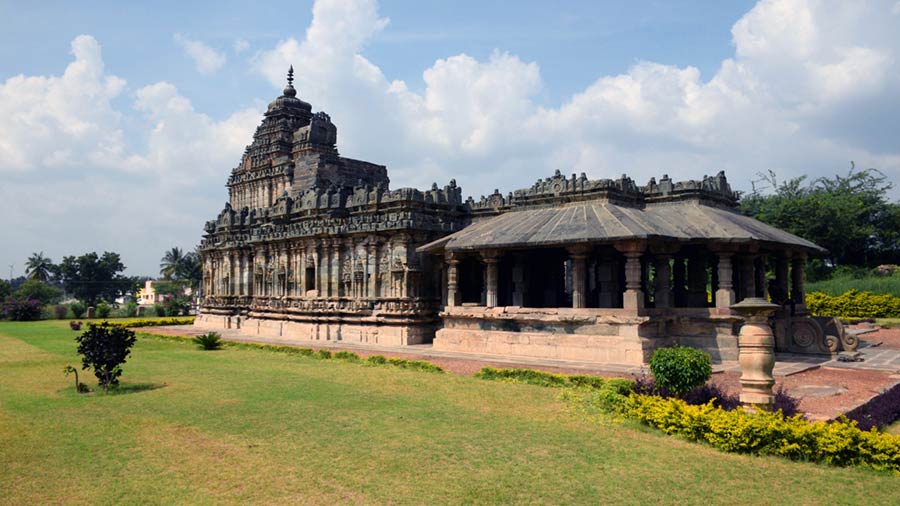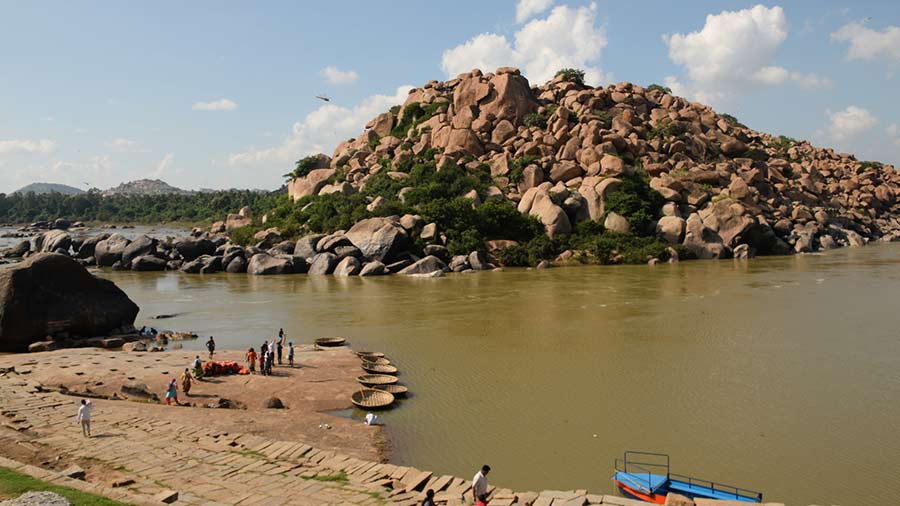If you are a sucker for Indian mythology, like myself, then this is one place you cannot strike out from your travel bucket list. A couple of hours drive from Bengaluru (around 124km), the Veerabhadra Temple, popularly known as the Lepakshi Temple, is located in Anantapur district of Andhra Pradesh. Built in 1533 AD by the Vijayanagara rulers, it is famous for its brilliant architecture that will take your breath away. The temple, with its frescoes and murals, is a fine example of Vijayanagara’s artistic splendour — a must visit for those who love history and heritage.
The land of legends
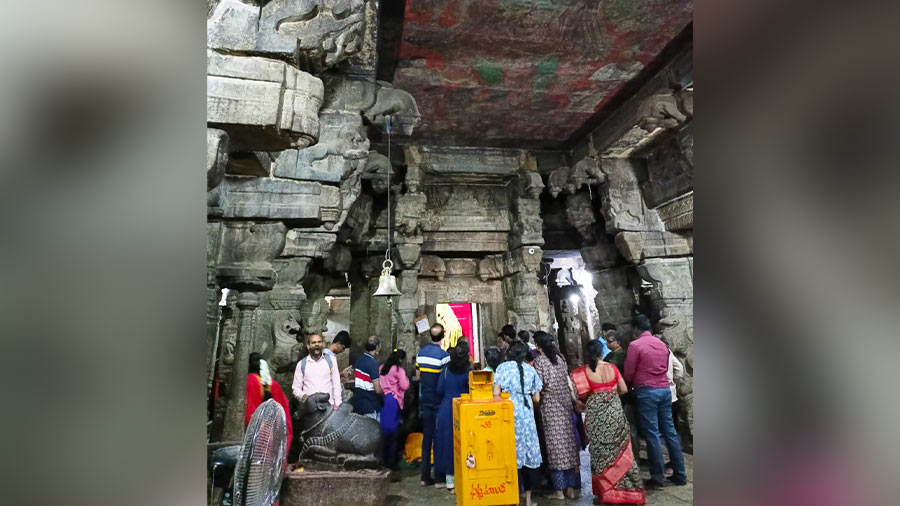
Entrance to Veerabhadra Temple Jeet Biswas
Lepakshi is a small village, about 15km from Hindupur and about 20km from the Kodikonda checkpost on (Bengaluru-Anantapur) NH-7. It is interesting to note how the place derived its name. The local lore goes that the wounded Jatayu (not Lalmohanbabu but the great bird from Ramayan he borrowed his pen name from) fell on a rocky hillock in this village while trying to stop the demon king Ravan from abducting Sita. Sadly, Ravan won the fight and left him to die after clipping his wings. When Ram arrived at the spot, he compassionately uttered the words, “Le Pakshi”, which means “Rise, bird”, in Telugu. Thus, the place came to be known as Lepakshi.
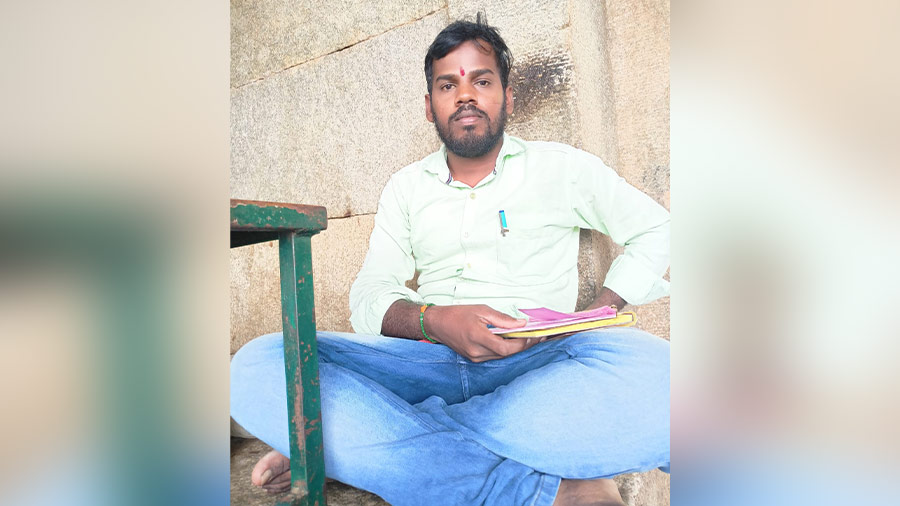
Mallikarjuna, the government clerk at the Temple Jaya Biswas
According to another legend, Virupanna, the treasurer of the Vijayanagara empire, had to go blind as a punishment for the crime he committed by building the Veerabhadra (the fiery form of Shiv) temple without the king’s permission. Hence, the place got its name “Lape-Akshi”, which means ‘the village of the blinded’,” said Mallikarjuna, the only government clerk present at the temple.
The massive temple complex
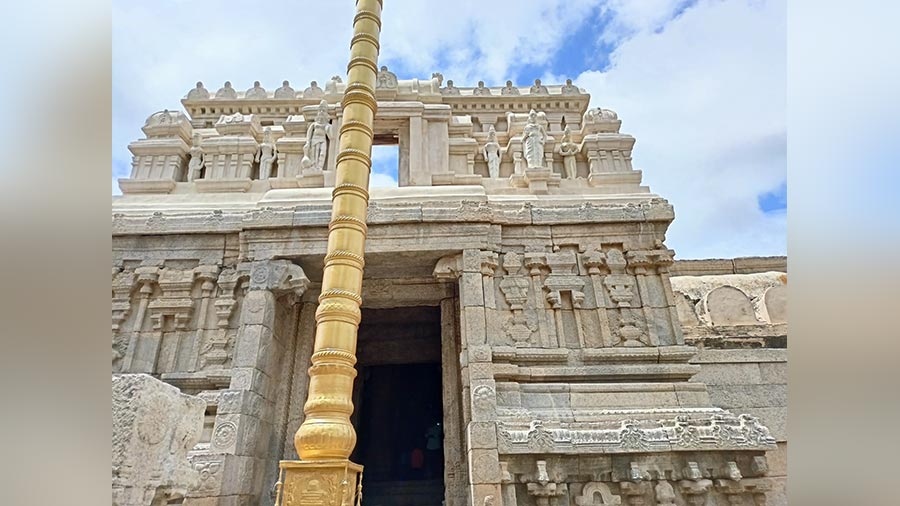
The Gopura in front of the front gate Jeet Biswas
From the moment you step inside the temple, you get to see glimpses of the Vijayanagara kingdom through pictorial representations on the stone walls and pillars. Along with the quintessential gopura (a large pyramidal tower) at the entrance of the temple, the complex houses idols of Veerabhadra, Vishnu, Papaneswara, Lakshmi, Ganesh and Durga. However, the primary ones are that of Veerabhadra and Durga. Each temple is attached to a mandap.
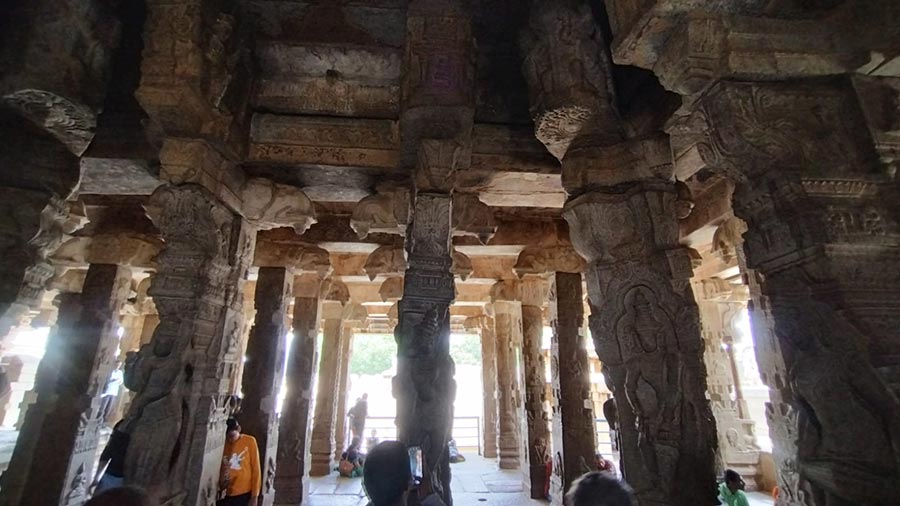
Pillars with intricate designs Jeet Biswas
You will also see a courtyard that runs all across the main temple. It is neatly aligned with verandahs on all sides. There are infinite pillars — all elaborately carved.
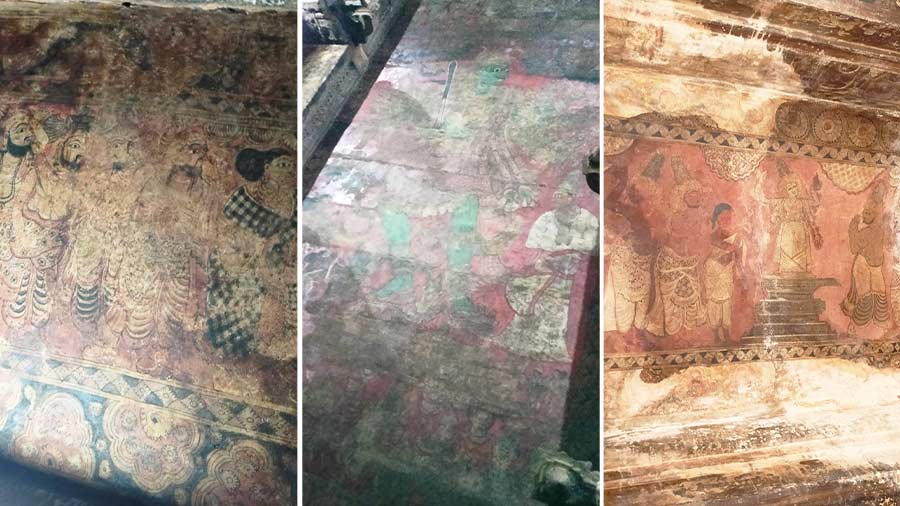
The frescoes on the ceiling Jaya Biswas
The fresco paintings are intricate and colourful, with scenes from Ramayan, Mahabharat and the puranas. What is more surprising is the survival of these ancient paintings even now. I was also told that the weavers of popular Dharmavaram silk saris owe their designs to the Lepakshi temple’s art and architecture.
The ‘Hanging Pillar’
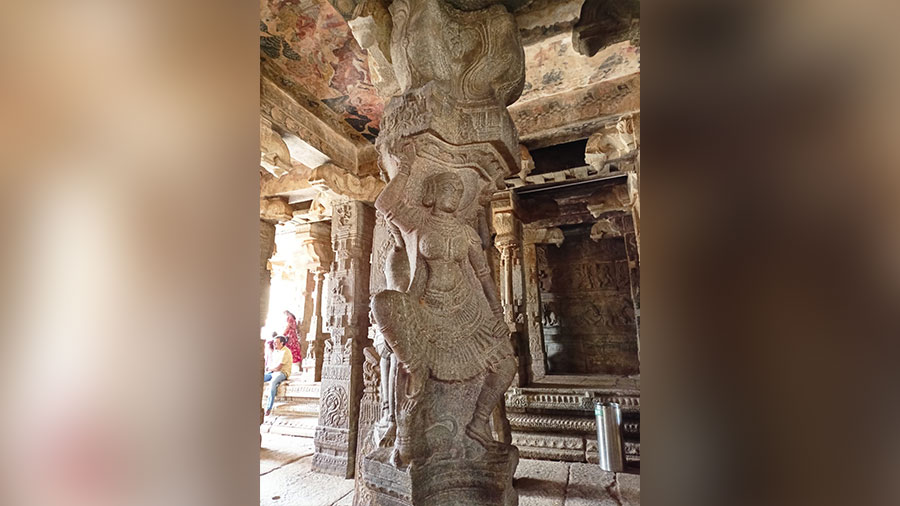
The hanging pillar Jaya Biswas
The ‘hanging pillar’ is yet another rare attraction of the temple. Apparently, there is a slight gap between the base of the pillar and ground, through which a thin cloth or paper can be passed. It is believed the pillar is slightly dislocated and touches the ground only on one side. However, you can hardly see the difference with bare eyes. It is indeed beyond imagination how such a heavy rock-cut pillar can still remain hanging from the roof for centuries together.
The unique ‘Shivling’
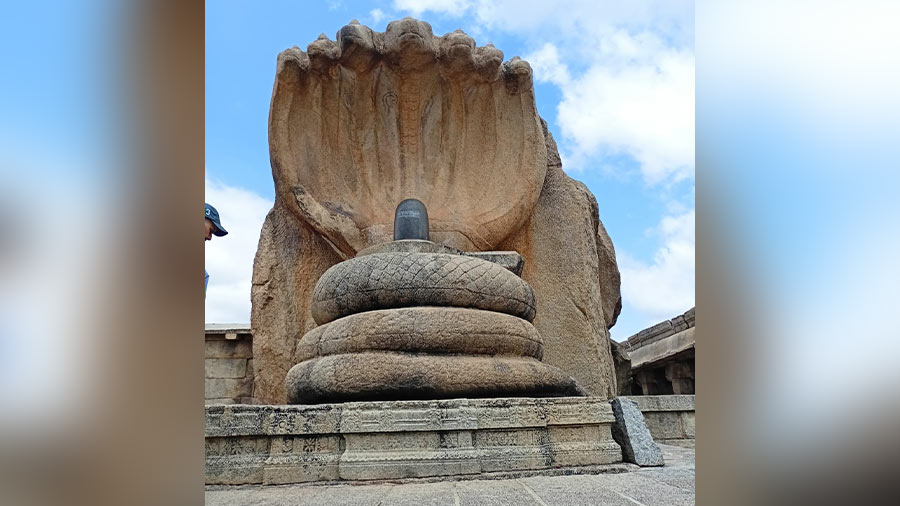
The Shivling sitting smugly under a multi-hooded snake Jeet Biswas
The courtyard of the temple also houses a huge Shivling, sitting smugly under a multi-hooded snake, which is nothing like the usual snake that he wears as his ornament around his neck. Instead, it reminds you of Shesh Nag, Vishnu's resting couch.
The unfinished ‘kalyan mandap’
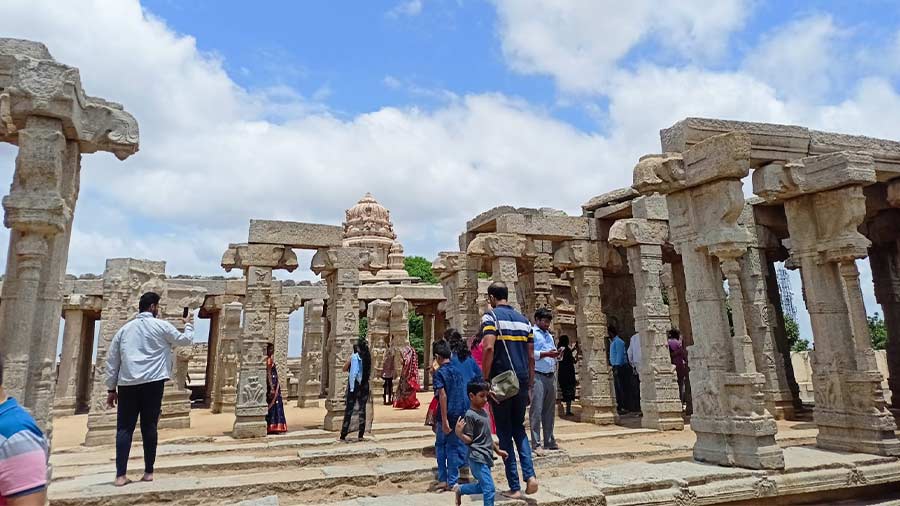
The open-air Kalyan Mandap Jaya Biswas
Soon after crossing the Shivling, you will witness an open-air pillared structure with beautiful carvings on every pillar, depicting the marriage of Shiva and Parvati. Apparently, it is an unfinished kalyan mandap or marriage hall. Not much information is known about it.
Sita’s footprint or Hanuman’s?
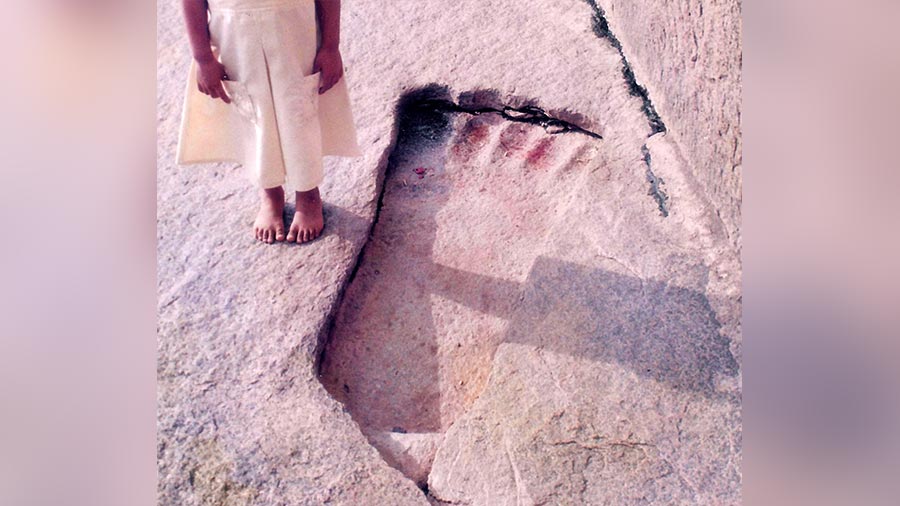
The famous Sita's footprint Wikimedia Commons
As you traverse the length and breadth of the temple complex, you will come across a huge footprint. While some say it’s the footprint of Sita, some say it’s of Hanuman’s. Interestingly, the depression is always filled with water and never dries completely. Local residents believe that water appears magically as a sign of respect to her and to keep Sita’s footprint clean. Apparently, nobody could find out the source of the water till date.
This is not the end…
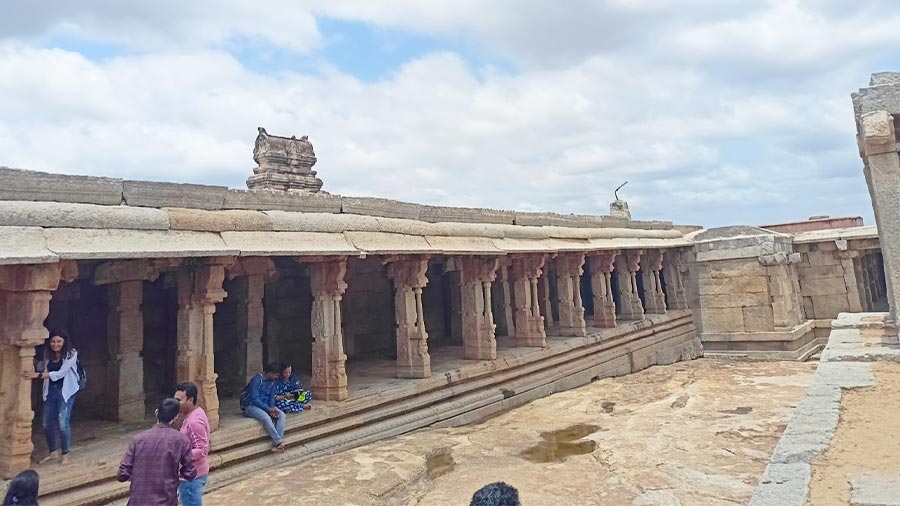
The long veranda running across the temple Jeet Biswas
For those who are desperately looking for a break from the monotonous life and are planning a day trip from Bangalore, visiting Lepakshi Temple can be a perfect destination. The best part about visiting this temple is that even if you are not there to offer your prayers, you can just roam around freely on the premises like a tourist at a historical site.
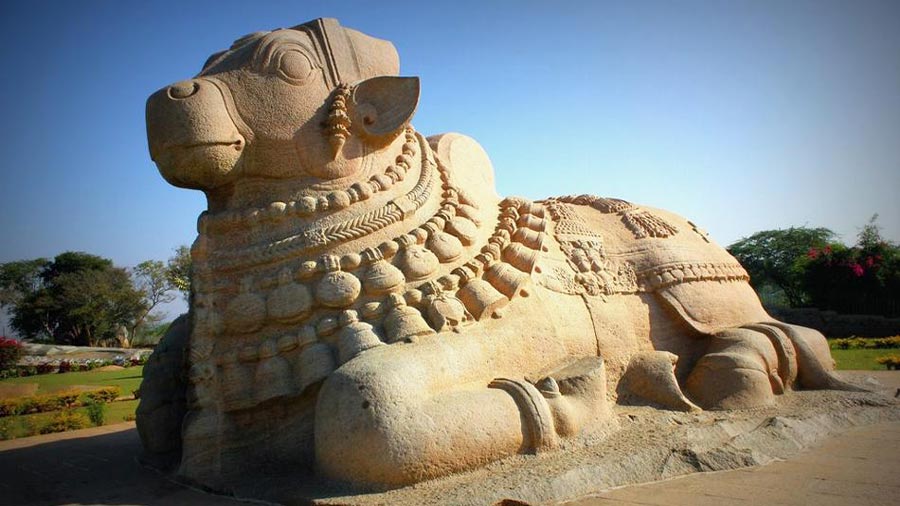
The statue of Nandi carved out of a single rock Wikimedia Commons
You’ll take around three hours to appreciate the architectural beauty of the temple complex. About 500 metres away from the temple complex, there’s a colossal statue of Nandi (Shiva’s bull), which apparently is the biggest Nandi in the country, carved out of a single rock.
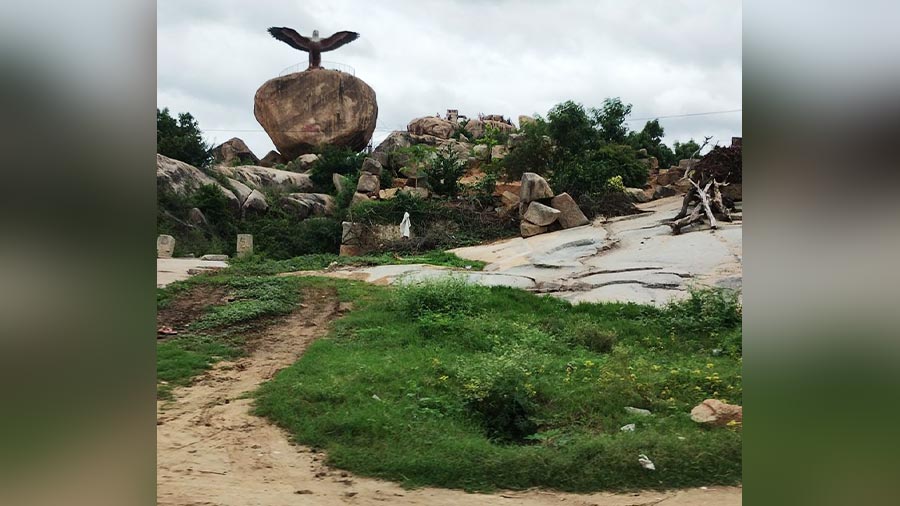
The Jatayu statue seen from a distance Jeet Biswas
Just across the road, you'll find the Jatayu Theme Park. Even if you feel tired and want to give it a miss, you can't miss the statue of the giant bird, perched on a huge rock, from a distance. By the end of it, you’ll be famished enough to hunt for a restaurant nearby.
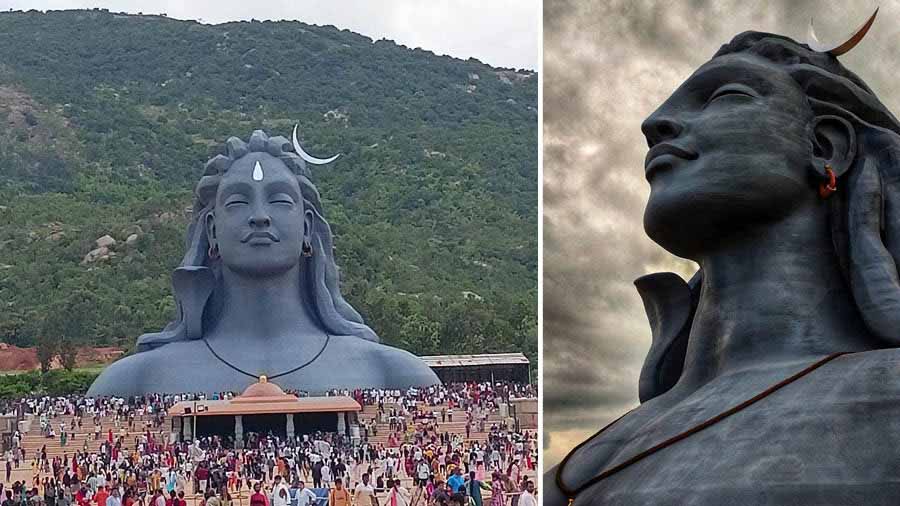
The 112-feet statue of Adiyogi Shiva at Isha Foundation Jeet Biswas
On your way back, you can also drop by at the Isha Foundation, a non-profit, spiritual organisation, for a photo-op with the mesmerising 112-feet statue of Adiyogi Shiva, a replica of the one in Coimbatore, Tamil Nadu. You can even have your lunch here. The canteen here serves delish dosas, lemon rice and more that you can enjoy to your heart’s content before heading home.
Travel information:
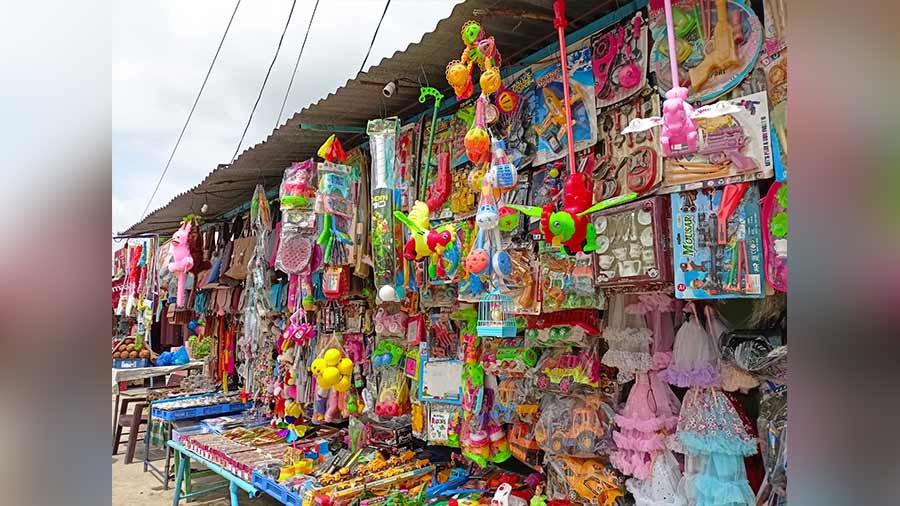
The stalls outside the temple premises Jaya Biswas
- It is always best to go by your own vehicle. You can also hire a cab from a tour operator. Private cabs are available from Bengaluru, Anantapur and Hindupur
- Please make sure to get your road permit from Karnataka to Andhra Pradesh at least a day in advance
- You can stay at private hotels in Anantapur and Hindupur
- Although the timings are 6am-6pm, try to reach as early as possible. Since the entire temple floor is made of stones and you will not be allowed to enter with your shoes on, you might get blisters on your feet
- Keep sipping water to escape the ill-effects of heat
- If you prefer hiring a guide, choose someone who can speak in English, besides Kannada and Telugu
